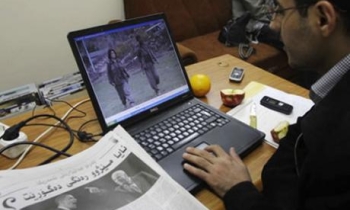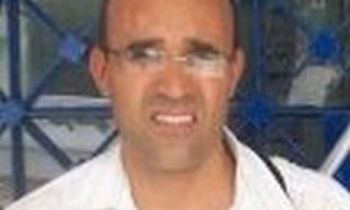South Korean newspapers warned of fierce resistance if the President Roh Moo-hyun's government does not withdraw its ongoing press "reform" measures.
"The government is ignoring the unanimous objection of the media, the National Assembly and civic groups, thereby endangering the public's right to know," the Korean Association of Newspapers (KAN) said in the statement. "Such anti-democratic and anachronistic suppression of the media did not exist even under military-backed authoritarian governments. The government must halt the action at once, or else face fierce resistance from the public."

"Journalists have to stay in their newsbeat, covering important issues day and night such as the second inter-Korean summit on October 2-4 and the Korean hostages held by the Taliban in Afghanistan. If the government forcibly implements its plan at this moment while reporters work on these sensitive issues, it will face severe opposition from the people,'' KAN said.
KAN held an emergency council Friday and agreed upon the statement to demand suspension of the press "reform" plan which would control media access to the government, and reduce press briefing facilities, according to the Korea Herald.
The government plan, titled "modernisation measures of press coverage," aims to discard the correspondent system and consolidate all briefing rooms at major government organisations. Under the plan, journalists will not be allowed to be stationed in government offices and will be offered temporary press cards to attend news briefings.
The government will communicate with the media only through press releases and official briefings. One-on-one contact with government officials would be limited, taking place only through official interview requests. The government has allocated 5.5 billion won ($5.8 million) to construct new briefing rooms which would replace existing working rooms, and gather reporters covering different agencies into a single facility.
The International Press Institute (IPI), in a letter to Roh on Monday, said, "An additional concern is the use of press passes that contain electronic chips. These will only allow journalists to pass through electronic barriers, if they have an appointment with an official. Electronic press passes may be used to monitor the movements of journalists and they represent yet another level of intrusion in the freedom of the media to operate independently and without constraints. In an age where open democracy and transparency are valued and have replaced the hidden governments of the past, these rules are a retrograde step and an open violation of the UN principle of 'Good Governance'."
The international Federation of Journalists (IFJ) described the move as an explicit attempt to restrict journalists' access to important government sources. "It is vital that the government be held accountable for a policy which is unpopular with its media and its people," IFJ Asia Pacific Director Jacqueline Park said. "Korean citizens deserve to have access to the workings of their government through journalists, who should be able to report directly from the source rather than from manufactured government releases," she said.
The Government Information Agency (GIA) has been in charge of implementing the package of press rules initiated by President Roh Moo-hyun, who claims that the plan will advance the nation's press system. Roh insists that equal opportunities will be given to smaller media outlets, and advanced news coverage methods will be set up through the plan. GIA was elevated to agency status in 1999 and is in charge of promoting government policies, both domestically and globally.
Media "reform" was one of Roh's key pledges during the 2002 presidential election, the Korea Herald said. As part of Roh's pledge to revamp the press-room system, the government established an "open briefing" system in 2003, which permitted all registered reporters — including internet and the so-called "minor" media journalists — to attend government briefings.
In May 2004, IPI removed South Korea from its Watch List, announcing that "IPI welcomes the statement of President Roh, who expressed his desire to work for reconciliation in the South Korean society and hopes that the field of media will be included in this renewed effort for harmony within the Korean society."
IPI Director Johan P Fritz wrote to Roh, "We hoped that press freedom in the country was improving, but events later in the year were to prove this perception depressingly misplaced." He urged the president to withdraw the new system and recover the reputation of Korea. "I do not want to again see South Korea on the IPI Watch List. Instead, I would rather see it as a full democracy with no restrictions on the free press."









